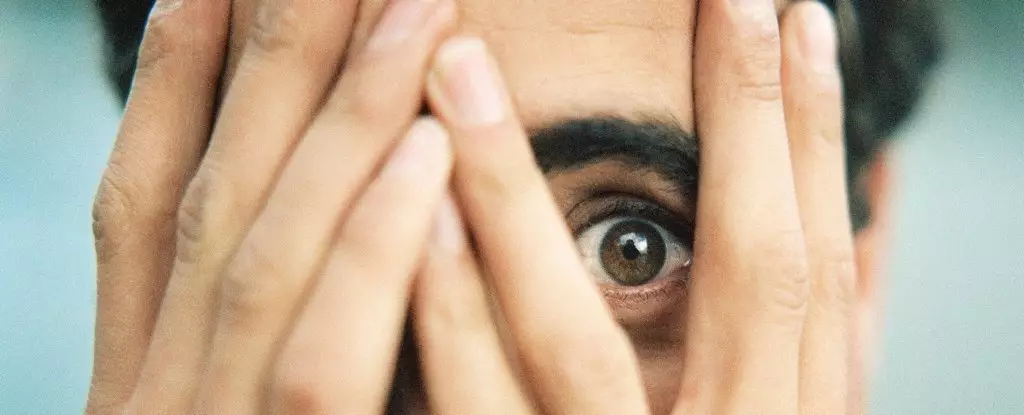There’s an undeniable discomfort that bubbles up when we witness someone fidgeting—a foot tapping, a finger drumming, or hair twirling. It may seem trivial on the surface, but the psychological impact of such movements can be profound. Recent studies have revealed a disturbing trend in human behavior: almost one in three individuals experience intense irritation when confronted with repetitive motions, a phenomenon labeled as misokinesia. This frustration is akin to that experienced by individuals suffering from misophonia, who are adversely affected by specific sounds. Yet while sounds have garnered some attention in psychological research, the field of misokinesia remains remarkably underexplored—until recently.
Fidgeting: More Than Just a Quirk
The exploration into misokinesia blends the realms of psychology and social interaction, emphasizing the shared emotional experience of those affected. In a ground-breaking study led by psychologist Sumeet Jaswal, researchers embarked on a journey to unravel the mechanics behind this phenomenon. With a sample size surpassing 4,100 participants, the study revealed that about 33% reported sensitivity to the fidgeting of others in everyday settings. This statistic portrays misokinesia not just as a personal quirk but as a widespread social challenge that affects relational dynamics and emotional well-being.
Few realize how deeply this phenomenon can intrude into social life. Those deal with misokinesia often report experiencing heightened frustration, anxiety, or even anger when exposed to fidgeting, impacting their social engagements, academic encounters, and work environments. A simple twitch can ruin a conversation or disrupt a meeting. The emotional toll is often unrecognized by those who don’t share the sensitivity, leading to stigmatization or misunderstanding, especially as most people dismiss fidgeting as merely a nervous habit.
The Mirror Neuron Hypothesis
What could lie at the heart of this emotional response? The exploration into the cognitive mechanisms behind misokinesia suggests intriguing possibilities. Researchers are considering whether mirror neurons—brain cells that activate both when we perform an action and when we observe someone else doing the same—could explain some individuals’ adverse reactions to fidgeting. These neurons create a form of social mirroring, possibly leading those with misokinesia to subconsciously internalize the anxiety that may be driving another person’s fidgeting.
This framework can evoke empathy but can conversely burden those sensitive to fidgeting. When confronted with the sight of someone else experiencing anxiety, individuals prone to misokinesia may feel an echoed sensation of that tension, amplifying their discomfort. Essentially, they may not just view the fidgeter as annoying but experience compounded emotional distress—a complex interplay of empathy and distress that begs further exploration.
The Emotional Crutch of Fidgeting
Fidgeting can often signify underlying anxiety or nervous energy. For many, it serves as a coping mechanism—a way to sidestep uncomfortable situations or emotions. Consequently, when someone who suffers from misokinesia witnesses these motions, they’re not merely observing; they’re indirectly engaging with the anxiety driving that behavior. This observational empathy might explain why misokinesia feels so confounding—individuals are trapped in a cycle of heightened emotional sensitivity, leading to reduced enjoyment in social scenarios.
While the prevalence of misokinesia suggests a collective challenge, the emotional repercussions are as varied as the individuals experiencing this phenomenon. Some individuals may feel only a mild annoyance, while others can find themselves paralyzed by angst when faced with fidgeting. This differentiation is essential, as it draws attention to the nuanced emotional landscapes in which we all navigate our social interactions.
The Call for Empathy and Understanding
As we dig deeper into the mechanics of misokinesia and its connection with broader behavioral patterns, one thing is clear: empathy and understanding are vital. Those who find fidgeting overwhelmingly irritating must recognize that their discomfort stems not from the act itself, but from layers of emotional complexity entwined with social interactions. The stigma attached to fidgeting, often dismissed as simply annoying, can lead to painful isolation and decreases in social participation for individuals sensitive to these behaviors.
Conversely, those who fidget should also strive to comprehend the disruptions their movements can cause to others, facilitating a more empathetic approach to their own behaviors. A balanced understanding can pave the way for more inclusive environments where both fidgeters and those sensitive to fidgeting coexist amicably. In assessing this previously overlooked phenomenon, we unveil a significant aspect of our shared human experience—one that deserves your attention and understanding.


Leave a Reply